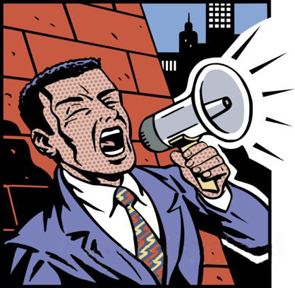A person who facilitates excellence in others facilitates potential
Bias. By listening for specifically for elements of the stated issues – problems, hopes, missing skills or motivation – facilitators merely hear what they can recognize as missing. If the context is unique, if there are unspoken or omitted bits, if there are patterns that should be noticed, if there are unstated historic – or subconscious – reasons behind the current situation, facilitators may not find them in a timely way (if at all), causing the interaction to begin in the wrong place, with the wrong timing and potentially not even discovering the crux of the problem, creating mistrust with the client.
Assumptions. If the person facilitating has had somewhat similar discussions, it’s possible that s/he will make faulty assumptions or guesses based on their history that do not take into account the client’s specific, historic, unconscious, and certainly idiosyncratic challenges.
Habits. The facilitator may enter the conversation with many prepared ways of handling similar situations and may miss the unique issues, patterns, and unspoken foundation that may hold the key to success.
As I write in my book What? Did you really say what I think I heard? the problem lie in our brains. Once we listen with a specific mindset or expectation, we restrict all else: our brains interpret the words spoken according to what it has heard before, with varying/unknown degrees of parallel to the current situation and often missing the client’s real intent, nuance, patterns, and comprehensive contextual framework and implications. We may end up offering help that misses excellence.
To have choice as to when, whether, or how to avoid filtering out possibility, we must go ‘beyond the brain’ by disassociating – going up on the ceiling and look down – to remove ourselves from any personal biases, assumptions, triggers or habits, enabling us to hear all that is meant (spoken or not). [In What? I have devoted an entire chapter to explaining how to trigger ourselves the moment there is a potential incongruence.]
For those unfamiliar with disassociation, try this: during a phone chat, put your legs up on the desk and push your body back against the chair, or stand up. For in-person discussions, stand up and/or walk around. [I have walked around rooms during Board meetings while consulting for Fortune 100 companies. They wanted excellence regardless of my physical comportment.] Both of those physical perspectives offer the physiology of choice and the ability to move outside of our instincts. Try it.
It’s important to excel at disassociating, entering conversations without any sort of biases or assumptions, and doing whatever is necessary to restrict any possibilities. Too often our clients and employees seek real leadership from us, and all we’re doing is what’s most comfortable for us – never discovering the real problems or solutions that would make a difference. As facilitators we hold important keys to making a difference. Let’s not discount the power of our positions.
____________
See my new Entrepreneur Programs: Getting Funded; Creating a Selling Machine; Marketing to Buying Decisions
____________
Sharon-Drew Morgen is an original thinker and thought leader, the author of 1700 articles and 9 books including NYTimes Business Bestseller Selling With Integrity and two Amazon bestsellers: Dirty Little Secrets: why buyers can’t buy and sellers can’t sell , and the game changing What? Did you really say what I think I heard? that explains, and fixes, the gap between what’s said and what’s heard. Sharon-Drew is the inventor of a Change Facilitation model that gives influencers a unique set of tools to facilitate congruent change for buyers in sales (Buying Facilitation®), leadership, coaching, and management. She is an inventor, speaker, trainer, consultant, and coach. Her award-winning blog www.sharondrewmorgen.com carri





